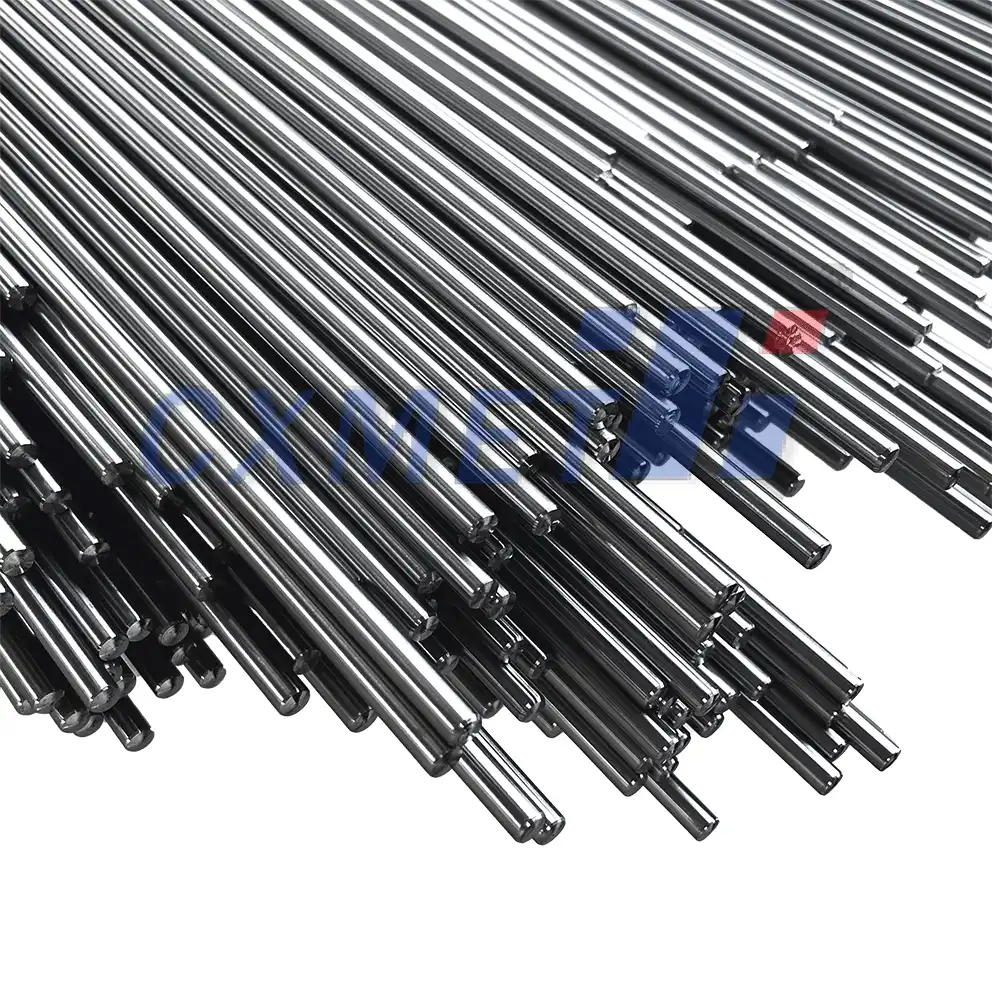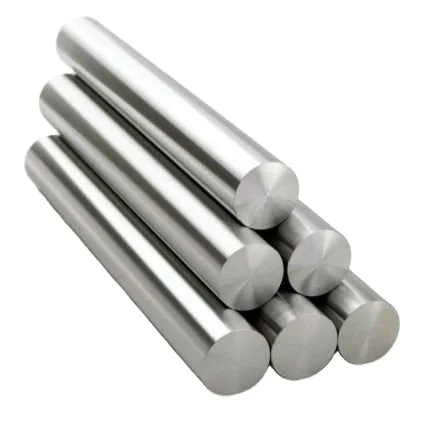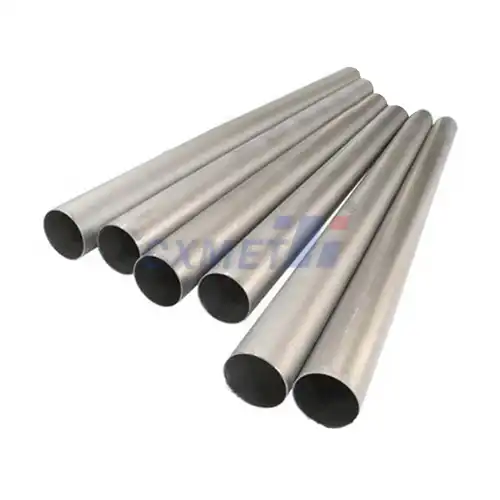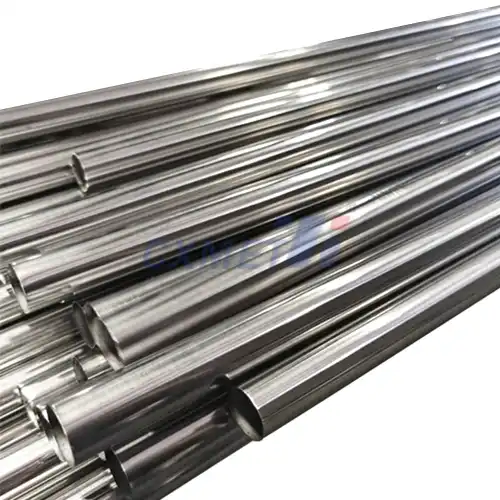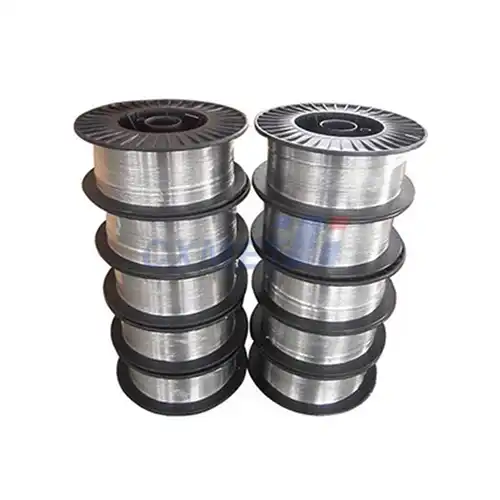How are CNC titanium parts used in the aerospace industry?
The aerospace industry is one of the primary beneficiaries of CNC titanium parts, utilizing them extensively in various aircraft and spacecraft components. The unique properties of titanium, combined with the precision of CNC machining, make these parts ideal for aerospace applications.
One of the most significant advantages of using CNC titanium parts in aerospace is weight reduction. Aircraft manufacturers are constantly seeking ways to reduce the overall weight of their planes to improve fuel efficiency and performance. Titanium's high strength-to-weight ratio allows for the creation of lightweight yet durable components that can withstand the extreme conditions encountered during flight.
Some common aerospace applications for CNC titanium parts include:
- Engine components: Titanium is used in various engine parts, such as fan blades, compressor blades, and turbine discs. These components benefit from titanium's high strength and heat resistance, allowing them to withstand the extreme temperatures and stresses within jet engines.
- Structural elements: CNC titanium parts are used in the aircraft's airframe, including wing spars, fuselage frames, and landing gear components. These parts contribute to the overall strength and durability of the aircraft while keeping weight to a minimum.
- Fasteners and connectors: Titanium bolts, nuts, and other fasteners are used throughout aircraft assemblies due to their strength, corrosion resistance, and compatibility with other materials.
- Hydraulic systems: Titanium's excellent corrosion resistance makes it ideal for use in hydraulic system components, such as pumps, valves, and actuators.
- Space exploration: In spacecraft and satellites, CNC titanium parts are used for various applications, including propulsion systems, structural components, and heat shields. The material's ability to withstand extreme temperatures and its low thermal expansion make it particularly suitable for space applications.
The aerospace industry's reliance on CNC titanium parts continues to grow as manufacturers push the boundaries of aircraft performance and efficiency. The precision offered by CNC machining allows for the creation of complex geometries and tight tolerances, which are crucial in aerospace applications where every fraction of a millimeter can impact performance and safety.
What role do CNC titanium parts play in medical implants and devices?
The medical industry has embraced CNC titanium parts for their biocompatibility, corrosion resistance, and ability to integrate with human tissue. These properties make titanium an excellent choice for various medical implants and devices, improving patient outcomes and quality of life.
Some of the key applications of CNC titanium parts in the medical field include:
- Orthopedic implants: Titanium is widely used in joint replacements, such as hip and knee implants. CNC machining allows for the creation of custom-fit prosthetics that match the patient's anatomy, improving comfort and functionality.
- Dental implants: Titanium's biocompatibility and ability to osseointegrate (fuse with bone) make it the material of choice for dental implants. CNC machining ensures precise fit and surface texture for optimal integration with the jawbone.
- Spinal implants: Titanium is used in various spinal fusion devices, including rods, screws, and cages. These implants provide stability and support for patients with spinal disorders or injuries.
- Craniofacial implants: CNC titanium parts are used in reconstructive surgery for facial and skull defects. The ability to create custom-shaped implants allows surgeons to achieve better aesthetic and functional results.
- Cardiovascular devices: Titanium is used in pacemaker casings, artificial heart valves, and other cardiovascular implants due to its biocompatibility and durability.
- Surgical instruments: Many surgical tools and instruments are made from titanium, taking advantage of its strength, lightweight nature, and resistance to repeated sterilization.
The use of CNC machining in creating titanium medical implants and devices offers several advantages. First, it allows for the production of complex geometries that can closely mimic natural bone structures or optimize the implant's performance. Second, CNC machining can create precise surface textures that promote better integration with surrounding tissues. Finally, the ability to produce custom implants based on patient-specific data (such as CT scans) enables more personalized and effective treatments.
As medical technology continues to advance, the role of CNC titanium parts in the field is likely to expand. Researchers are exploring new surface treatments and implant designs that can further enhance the biocompatibility and performance of titanium implants. Additionally, the integration of 3D printing with CNC machining is opening up new possibilities for creating even more complex and customized medical devices.
How do CNC titanium parts contribute to advancements in the automotive industry?
The automotive industry has increasingly turned to CNC titanium parts to address challenges related to weight reduction, performance enhancement, and durability. While titanium components are not as widespread in automobiles as they are in aerospace applications (primarily due to cost considerations), they play a crucial role in high-performance and luxury vehicles.
Some of the key applications of CNC titanium parts in the automotive industry include:
- Engine components: Titanium is used in various engine parts, such as connecting rods, valves, and valve springs. These components benefit from titanium's high strength-to-weight ratio and heat resistance, allowing for improved engine performance and efficiency.
- Exhaust systems: High-performance cars often feature titanium exhaust systems. The material's corrosion resistance and ability to withstand high temperatures make it ideal for this application, while its lightweight nature contributes to overall vehicle weight reduction.
- Suspension components: Titanium is used in some high-end suspension systems, including springs and shock absorber components. The material's strength and fatigue resistance contribute to improved handling and durability.
- Drivetrain components: Some performance vehicles use titanium in drivetrain parts, such as drive shafts and gear sets, to reduce rotational mass and improve power transfer efficiency.
- Brake systems: Titanium is sometimes used in brake calipers and other brake system components, offering weight savings without compromising on strength and heat dissipation.
- Body and chassis components: In some high-end sports cars and racing vehicles, titanium is used for various body and chassis components to reduce weight while maintaining structural integrity.
The use of CNC machining in producing titanium automotive parts offers several advantages. First, it allows for the creation of complex geometries that can optimize component performance, such as reducing aerodynamic drag or improving heat dissipation. Second, CNC machining enables tight tolerances and excellent surface finishes, which are crucial for many automotive applications, particularly in engine and drivetrain components.
While the use of titanium in mainstream vehicles remains limited due to cost factors, the automotive industry continues to explore ways to leverage the material's unique properties. As manufacturing technologies advance and become more cost-effective, we may see an increased adoption of CNC titanium parts in a broader range of vehicles.
In conclusion, CNC titanium parts have found diverse applications across various industries, from aerospace and medical to automotive and beyond. The combination of titanium's exceptional properties and the precision offered by CNC machining has enabled the creation of high-performance components that push the boundaries of what's possible in their respective fields. As technology continues to advance, we can expect to see even more innovative applications for CNC titanium parts, further revolutionizing industries and improving our daily lives.
At SHAANXI CXMET TECHNOLOGY CO., LTD, we take pride in our extensive product range, which caters to diverse customer needs. Our company is equipped with outstanding production and processing capabilities, ensuring the high quality and precision of our products. We are committed to innovation and continuously strive to develop new products, keeping us at the forefront of our industry. With leading technological development capabilities, we are able to adapt and evolve in a rapidly changing market. Furthermore, we offer customized solutions to meet the specific requirements of our clients. If you are interested in our products or wish to learn more about the intricate details of our offerings, please do not hesitate to contact us at sales@cxmet.com. Our team is always ready to assist you.
|
|
|
|
References
- Aerospace Manufacturing and Design. (2021). "Titanium in Aerospace Applications."
- Medical Device and Diagnostic Industry. (2020). "The Benefits of Titanium in Medical Devices."
- Machining Technology. (2019). "CNC Machining Titanium: Everything You Need to Know."
- Engineering.com. (2018). "Titanium in the Automotive Industry."
- Journal of Materials Engineering and Performance. (2017). "Applications of Titanium and Its Alloys in the Aerospace Industry."
- Journal of Prosthetic Dentistry. (2016). "Titanium in Dentistry: Historical Development, State of the Art and Future Perspectives."
- Advanced Materials & Processes. (2015). "Titanium in the Automotive Industry: Trends and Applications."
- Materials Science and Engineering: A. (2014). "Recent Developments in CNC Machining of Titanium Alloys."
- International Journal of Machine Tools and Manufacture. (2013). "CNC Machining of Titanium Alloys: A Review."
- Titanium Today. (2012). "The Growing Use of Titanium in Automotive Applications."





